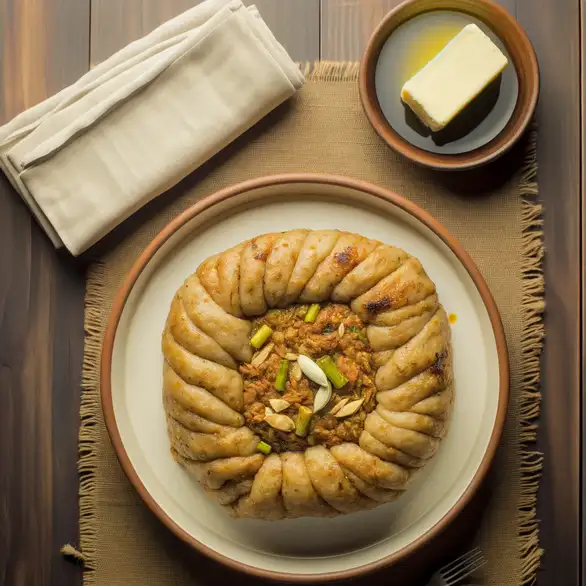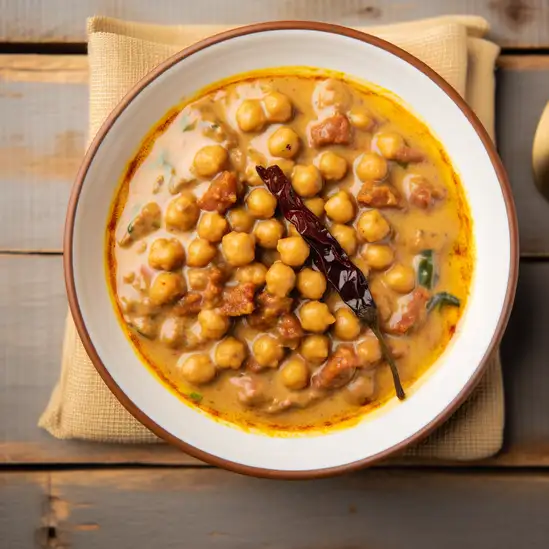



If you ever find yourself craving a place where the mountains seem to whisper stories and the air carries a crisp,pine-scented freshness,Kulu in Himachal Pradesh should be on your radar. There’s this gentle rhythm to the town—calm yet alive—that instantly wraps around you like a warm shawl. Walking through its narrow lanes,you’ll catch glimpses of colorful prayer flags fluttering against the backdrop of snow-capped peaks,while the distant sound of temple bells mingles with the chatter of locals and the occasional bark of a mountain dog. The vibe here is refreshingly unhurried. You can sip on steaming cups of chai at a roadside stall,watching farmers bring down fresh apples and apricots from the orchards,their sweet aroma mingling with the earthy scent of damp soil. The markets buzz with artisans selling handwoven woolens and intricate wood carvings,each piece telling a story of the valley’s rich heritage. And the food—oh,the food! Try the trout,freshly caught from the Beas River,or indulge in a plate of siddu,a local bread that’s as comforting as a hug. What really makes Kulu stand out is its blend of spirituality and simplicity. The ancient temples,tucked away in quiet corners,invite moments of reflection,while the warm smiles of the locals make you feel like you’ve stumbled upon a place that’s been waiting just for you. It’s a town that doesn’t rush,doesn’t shout,but gently pulls you into its embrace,leaving you with a sense of peace long after you’ve left.
The information on this page is currently being reviewed by Tripkliq and should be used as a guide only
Eng word: Hello
Eng pronunciation: Namaste
Local language: नमस्ते
Eng word: Goodbye
Eng pronunciation: Alvida
Local language: अलविदा
Eng word: Thank you
Eng pronunciation: Dhanyavaad
Local language: धन्यवाद
Eng word: How much
Eng pronunciation: Kitna
Local language: कितना
Eng word: Toilet
Eng pronunciation: Shauchalay
Local language: शौचालय
Eng word: Help me
Eng pronunciation: Meri madad karo
Local language: मेरी मदद करो
Eng word: Yes
Eng pronunciation: Haan
Local language: हाँ
Eng word: No
Eng pronunciation: Nahi
Local language: नहीं
Eng word: Excuse me
Eng pronunciation: Maaf kijiye
Local language: माफ़ कीजिये
Kullu, also known as 'Kulanthpitha' meaning 'the end of the habitable world', is an ancient town with its history dating back to the 1st century AD, showcasing an amalgamation of nature and rich cultural heritage.
The Great Himalayan National Park, located in Kullu, is a UNESCO World Heritage site renowned for its biodiversity. It is home to more than 375 fauna species, showcasing the ecological richness of Kullu.
Kullu is dotted with many ancient temples, such as the Raghunath Temple and Bijli Mahadev Temple, which are not only spiritual centers but also exhibit splendid Himalayan architecture.
A unique international festival, Kullu Dussehra starts on 'Vijaya Dashami', the day it ends in other parts of India, and continues for seven days. It celebrates the victory of good over evil and attracts thousands of tourists and devotees.
Kullu is famous for its Pashmina shawls and Kullu caps, made from fine handwoven wool, showcasing the town's rich tradition in handloom and handicrafts.
Manali, a part of the Kullu district, is one of the most popular tourist destinations in India known for its breathtaking landscapes. It serves as the gateway to the Solang Valley and Rohtang Pass.
Kullu has a vibrant cultural scene with traditional dances like the Nati being popular. The region’s folklore, music, and dance reflect the harmonious coexistence of nature and mankind.
Kullu revolutionized apple cultivation in India. The introduction of apples to Kullu by Samuel Stokes in the early 20th century led to economic prosperity and transformed the landscape into lush green orchards.
The architecture in Kullu is a splendid mix of colonial and indigenous styles. Traditional Kathkuni architecture, which uses wood and stone, without any cement, is particularly noteworthy for its earthquake-resistant properties.
In Kulu, the most common Power Adaptor is Type C, Type D.



A type of bread made from wheat flour, often stuffed with various fillings like nuts or vegetables, and cooked on a griddle.

A traditional Himachali dish made with chickpeas cooked in a yogurt-based gravy, flavored with spices and often garnished with coriander.

A festive rice dish cooked with a variety of lentils and spices, typically served during special occasions and celebrations.

Freshly caught trout fish from the Beas River, usually grilled or cooked in a spicy masala, showcasing the local flavors.

A type of stuffed bread similar to a kachori, filled with black gram dal and spices, often served with chutney.

A spicy chicken curry made with local spices and herbs, reflecting the culinary traditions of the Kullu region.
Imagine stepping into a city that pulses with energy,where every street corner hums with life and stories waiting to be discovered—that’s Mumbai for you. The moment you arrive,you’re wrapped in a vibrant tapestry of sounds:the rhythmic clatter of local trains,the lively chatter of street vendors,and the distant call of temple bells blending with honking rickshaws. The air carries a mix of spices from roadside stalls,mingling with the salty breeze from the Arabian Sea,creating an intoxicating scent that’s uniquely Mumbai.
Walking through its bustling lanes,you’ll see a kaleidoscope of colors—bright saris fluttering in the wind,intricate colonial architecture standing proudly beside sleek skyscrapers,and street art that tells tales of the city’s soul. Mumbai’s character is a beautiful contradiction:it’s fast-paced yet welcoming,chaotic yet deeply rooted in tradition. The city’s heartbeat is its people—dreamers,artists,and entrepreneurs who wear their resilience and warmth like a badge of honor.
And then there’s the food—oh,the food! From the tangy,spicy street-side vada pav that feels like a warm hug,to the rich,aromatic biryanis and fresh seafood by the sea,every bite is a celebration of flavors. Mumbai invites you to lose yourself in its maze of neighborhoods,each with its own rhythm and charm,promising moments of surprise and connection. It’s not just a place to visit; it’s a city that stays with you long after you’ve left.
A coastal city in Kerala,Kochi is famous for its serene backwaters,Fort Kochi,and nearby islands like Vypin and Willingdon,making it a top destination for travelers.
ExploreImagine stepping into a place where the sun kisses your skin,the salty breeze carries the laughter of beachside chatter,and every corner hums with a laid-back yet vibrant energy—that’s North Goa for you. It’s a lively patchwork of golden sands,swaying palms,and colorful shacks where the aroma of sizzling seafood mingles with the faint scent of frangipani flowers. Whether you’re wandering through the bustling markets of Anjuna or watching the sun dip behind the waves at Calangute,there’s a rhythm here that feels both timeless and alive.
What really makes North Goa special is its blend of cultures and carefree spirit. You’ll find Portuguese-influenced architecture standing proudly alongside lively street art,while the music—from mellow acoustic sets to pulsing electronic beats—drifts through the air,inviting you to join in. The locals,warm and welcoming,add a genuine charm that makes you feel like you’re part of a big,sun-soaked family.
And the flavors! Freshly caught fish grilled with spices that tease your taste buds,tangy Goan curries,and sweet,creamy feni that’s perfect for toasting to new adventures. As night falls,the beach transforms into a playground of bonfires and music,where stories flow as freely as the ocean breeze. North Goa isn’t just a destination; it’s a feeling—a place that stays with you long after you’ve left.
If you ever find yourself craving a place where the ocean breeze carries stories of adventure and the rhythm of waves sets your pace,Port Blair is where you want to be. This city feels like a gentle invitation to slow down and soak in the raw beauty of island life. The moment you step off the ferry or plane,the salty air mingled with the scent of tropical flowers wraps around you like a warm hug. Palm trees sway lazily against a backdrop of turquoise waters,and the chatter of locals blends with the distant call of seabirds,creating a soundtrack that’s both lively and soothing.
Port Blair isn’t just a gateway to the Andaman Islands; it’s a place where history whispers through the walls of the Cellular Jail,a somber yet inspiring reminder of India’s past. But beyond its historical weight,the city pulses with a laid-back charm—colorful markets burst with fresh seafood,exotic fruits,and spices that tease your senses. Grab a plate of freshly caught fish grilled with local herbs,and you’ll taste the ocean’s essence in every bite.
What makes Port Blair truly special is its blend of cultures and the warmth of its people. You’ll find a mix of indigenous traditions and influences from across India,all coexisting in a relaxed,welcoming vibe. Whether you’re wandering along Corbyn’s Cove Beach at sunset or chatting with fishermen mending their nets,there’s a genuine friendliness here that makes you feel like you belong. It’s a place that invites you to explore,reflect,and simply be.
If you step into Chennai,you’ll immediately feel a pulse that’s both ancient and alive—like the city is breathing stories through its streets. It’s a place where the salty breeze from the Bay of Bengal mingles with the rich aroma of jasmine flowers and sizzling street food. The soundscape is a lively mix of temple bells,the rhythmic clatter of auto-rickshaws,and the distant hum of Carnatic music drifting from open windows. Chennai doesn’t rush; it invites you to slow down and soak in its layered rhythms.
Walking through the neighborhoods,you’ll see a fascinating blend of colonial architecture standing shoulder to shoulder with colorful markets bursting with fresh produce,spices,and vibrant textiles. The city’s heart beats strongest in its people—warm,proud,and deeply rooted in tradition yet open to the world. Festivals here aren’t just events; they’re immersive experiences where you can witness centuries-old rituals,dance,and music that feel like a living tapestry.
And then there’s the food—oh,the food! Imagine biting into a crispy,golden dosa,its tangy chutneys and spicy sambar awakening your senses. Or savoring a steaming bowl of filter coffee that’s as bold and comforting as the city itself. Chennai’s charm lies in these everyday moments,where history,culture,and life blend seamlessly. If you want a city that feels like a warm embrace and a lively conversation all at once,Chennai is waiting with open arms.
Known as the 'Venice of the East',Alleppey is famous for its houseboats,backwaters,and proximity to small islands,offering a tranquil escape for travelers.
ExploreTourists may be approached by individuals offering drugs, which is illegal and can lead to legal trouble or extortion.
Some operators offer adventure activities like paragliding or river rafting at low prices but provide substandard or unsafe services.
Unlicensed guides may approach tourists, offering their services but providing little value or incorrect information about the area.
Scammers posing as travel agents may sell fake tickets for buses, trains, or tours, leaving tourists stranded.
Tourists may be lured into booking accommodations that either don't exist or are far below the promised quality.
Shops near tourist spots may sell local handicrafts or souvenirs at inflated prices, targeting unaware visitors.
Local taxi drivers may overcharge tourists, especially those unfamiliar with the standard rates, by not using meters or quoting inflated prices.
Locals may charge tourists for taking photos of them, their animals, or their property without prior notice.
Some individuals near temples may pressure tourists into making 'mandatory' donations, which are not officially required.
Bike or car rental services may claim damages or repairs that were pre-existing to extract extra money from tourists.
The use, possession, and trafficking of drugs are strictly prohibited in Kulu, India, under the Narcotic Drugs and Psychotropic Substances (NDPS) Act of 1985. Penalties for drug-related offenses are severe and can include long-term imprisonment and hefty fines. Tourists should avoid any involvement with illegal drugs to prevent legal issues.
In Kulu, India, smoking is regulated under the Cigarettes and Other Tobacco Products Act (COTPA) of 2003. Smoking is prohibited in public places such as hospitals, educational institutions, public transport, and government offices. Designated smoking areas may be available in some establishments like hotels and restaurants. Tourists should be aware that smoking in non-designated areas can result in fines.
Vaping is subject to strict regulations in India. The Indian government banned the production, import, sale, and advertisement of e-cigarettes and vaping products in 2019. Tourists should avoid bringing vaping devices and e-liquids into the country, as possession and use can lead to legal consequences, including fines and imprisonment.
What are other people saying about Kulu?
Recent Social posts about Kulu
There is nothing to show you for now.